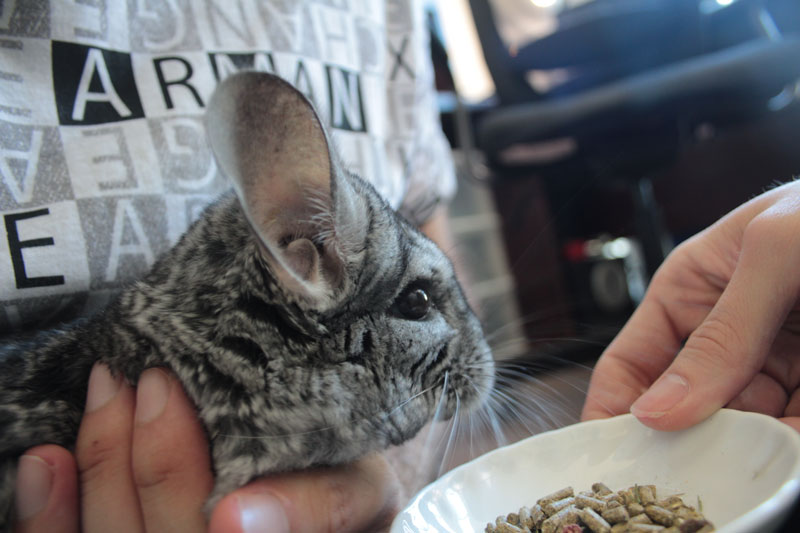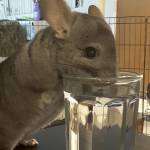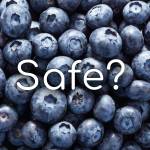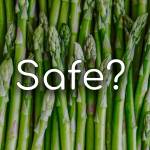Chinchillas, those captivating and exceptional creatures, possess a proclivity for an idiosyncratic diet that is essential for their sustenance and welfare. When adopting chinchillas as pets, it becomes incumbent upon their owners to provide them with a diet that is not only balanced but is also replete with high-fiber, low-fat, sugar-free, and unprocessed food items.
In this exegesis, we’ll delve into the dietary habits of chinchillas in their natural habitat, their prescribed dietary regimen in captivity, and the occasional treats and chew sticks that they can relish, albeit in moderation. Additionally, we’ll examine the rationale behind the need for chinchillas to be placed on a strictly regulated diet and highlight the dietary culprits that must be eschewed to keep your furry friends in the pink of health and jubilance.
Without further ado, let’s embark on our journey towards understanding the nuanced and intricate world of chinchilla diets.
Wild Diet of Chinchillas
In their natural habitat, nestled amidst the craggy peaks of the Andes Mountains in South America, chinchillas thrive on a diverse and eclectic diet consisting of an assortment of plant-based victuals. These delicacies include a smorgasbord of grasses, leaves, bark, and other such vegetative matter, that are vital to their sustenance and vitality.
Not only does their wild diet comprise of foods that are rich in fiber, low in fat, and devoid of any saccharine or processed ingredients, but it also obviates the need for them to partake in any hydration-related antics. Such is the bounty of the plant kingdom that the water content in their verdant diet suffices to satiate their thirst.
One cannot help but marvel at the ingenuity and resourcefulness of these magnificent creatures that have evolved to subsist on the bounty of nature without the need for any external accouterments. Truly, chinchillas are a testament to the beauty and wonder of the natural world.
Diet of Pet Chinchillas
In the context of pet chinchillas, it is imperative to note that their dietary needs are remarkably similar to their wild counterparts. The bedrock of their sustenance lies in the consumption of premium-grade hay, such as Timothy hay or orchard grass hay, which plays a pivotal role in maintaining optimum digestion and thwarting the onset of dental afflictions that plague these delicate creatures.
However, the quest for a well-rounded dietary regimen does not end here. It is imperative to provide your chinchilla with a constant and unfettered supply of fresh and pure water, preferably through the use of a water bottle to curtail spillage and contamination.
Moreover, a small amount of chinchilla-specific pellets can be judiciously incorporated into their diet to ensure that they receive the entire gamut of nutrients that their fragile bodies require. Nevertheless, it is imperative to ascertain that the pellets are bereft of any unnecessary additives, such as sugars or fillers, that may be detrimental to their health. The pellets should comprise no more than a paltry 10% of your chinchilla’s dietary intake, lest we unwittingly tip the scales in the wrong direction.
The Importance of a Strict Diet for Chinchillas
Given the delicate digestive mechanisms of chinchillas, it behooves us to maintain a rigorous and stringent diet regimen that is judiciously calibrated to their physiological peculiarities. A veritable cornucopia of evidence points towards the fact that a diet that is high in fiber, low in fat, and devoid of saccharine and processed fare is the sine qua non for their well-being and longevity.
Failing to maintain such a diet can lead to a host of pernicious health ailments, including but not limited to, obesity, diabetes, and an array of dental conundrums that can wreak havoc on their quality of life. It is thus incumbent upon us to scrupulously avoid any and all alimentary temptations that may be deleterious to our furry friends, such as the deadly duo of chocolate or avocado, that can spell doom for their tenuous existence.
In essence, a strict and vigilant approach towards their diet is indispensable to ensuring that our chinchillas lead a life that is replete with joy and fulfillment, free from the clutches of any maladies that may mar their existence.

Foods to Avoid
It is a universally acknowledged truth that certain foods have no place in a chinchilla’s diet, due to the potential for dire consequences that may ensue. In particular, high-fat or high-sugar foods are to be strictly avoided as they are notorious for inducing digestive woes and contributing to the perilous condition of obesity. Additionally, several plants are pernicious to chinchillas, with the likes of avocado, cherry pits and leaves, potato leaves and stems, and tomato leaves and stems posing a grave threat to their well-being.
Consequently, it is imperative that we exercise due diligence and meticulously research any new food items that we wish to introduce into our chinchilla’s dietary repertoire. The foods that are strictly off-limits include chocolate, candy, processed snacks, nuts, seeds, and dried fruits, all of which can have catastrophic consequences for our little friends.
It is also worth noting that certain other foods should be given to chinchillas in moderation, with fruits being a prime example. Although fruits are deemed healthy for humans, the copious amounts of sugar present in them are far too much for chinchillas to handle, and can lead to a myriad of digestive conundrums that can be disastrous for their health. Vegetables, although a healthy addition to their diet, must be offered in limited quantities, as they are notorious for inducing bloating and digestive disturbances.
Another food group that is strictly off-limits for chinchillas is dairy. Given that chinchillas are lactose intolerant, dairy products can cause a host of gastrointestinal distress, which can manifest in the form of diarrhea, bloating, and discomfort. Lastly, nuts and seeds should be given in moderation as they are high in fat, which can lead to a plethora of digestive maladies if given in excess.
Treats and Chew Sticks
Chinchillas are known to love treats and chew sticks, which not only add excitement to their diet but also contribute to their dental health. However, it’s important to remember that treats should make up only a small portion of a chinchilla’s diet. When it comes to treats, there are a few things to keep in mind.
One option is to offer small amounts of dried fruits or vegetables, such as apple or carrot. It’s important to note that these should be given in moderation due to their high sugar content. Another option is to look for commercial chinchilla treats that are specifically formulated for their nutritional needs.
In addition to treats, chew sticks made from natural materials can provide a source of enrichment for chinchillas. Applewood and willow are safe options, but be sure to avoid those with added sugars or flavors. Plain shredded wheat and small pieces of unsweetened shredded coconut can also be given as treats.
Remember, treats and chew sticks should only make up a small portion of a chinchilla’s diet, and moderation is key to preventing digestive issues.
Your chinchilla’s diet is a crucial aspect of their health and well-being. To maintain their optimal health, it’s vital to feed them a balanced diet that is high in fiber, low in fat, and free of sugar and processed foods. A diet that is too high in fat or sugar can lead to obesity, diabetes, and dental issues.
Hay, specifically Timothy hay or orchard grass hay, should form the foundation of your chinchilla’s diet. Hay is essential for proper digestion and preventing dental issues. Additionally, chinchillas require a small amount of chinchilla-specific pellets to ensure they receive all the necessary nutrients. Be sure to avoid pellets that contain added sugars or fillers, and pellets should make up no more than 10% of their diet.
Foods that should be avoided include high-fat or high-sugar foods, as well as certain plants that can be toxic to chinchillas. Chocolate, candy, processed snacks, nuts, seeds, and dried fruits should be avoided, as well as avocado, cherry pits and leaves, potato leaves and stems, and tomato leaves and stems.
Treats and chew sticks are okay in moderation and can provide dental health benefits and enrichment for your chinchilla. Safe treat options include small amounts of dried fruits or vegetables, such as apple or carrot, or commercial chinchilla treats that are specifically formulated for them. Chew sticks made from natural materials such as applewood or willow can also be given, but avoid those with added sugars or flavors.
In conclusion, a chinchilla’s diet should consist mainly of hay and chinchilla-specific pellets, with occasional small amounts of fresh vegetables and fruits as treats. By following these dietary guidelines and ensuring fresh water is always available, you can help maintain your chinchilla’s health and well-being.







